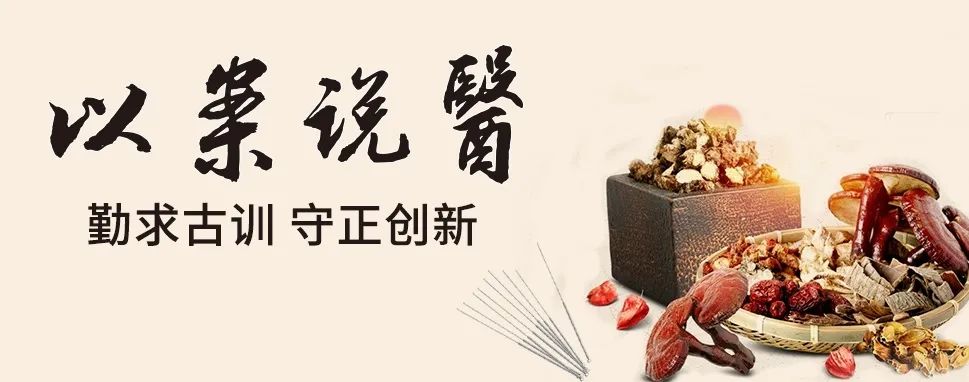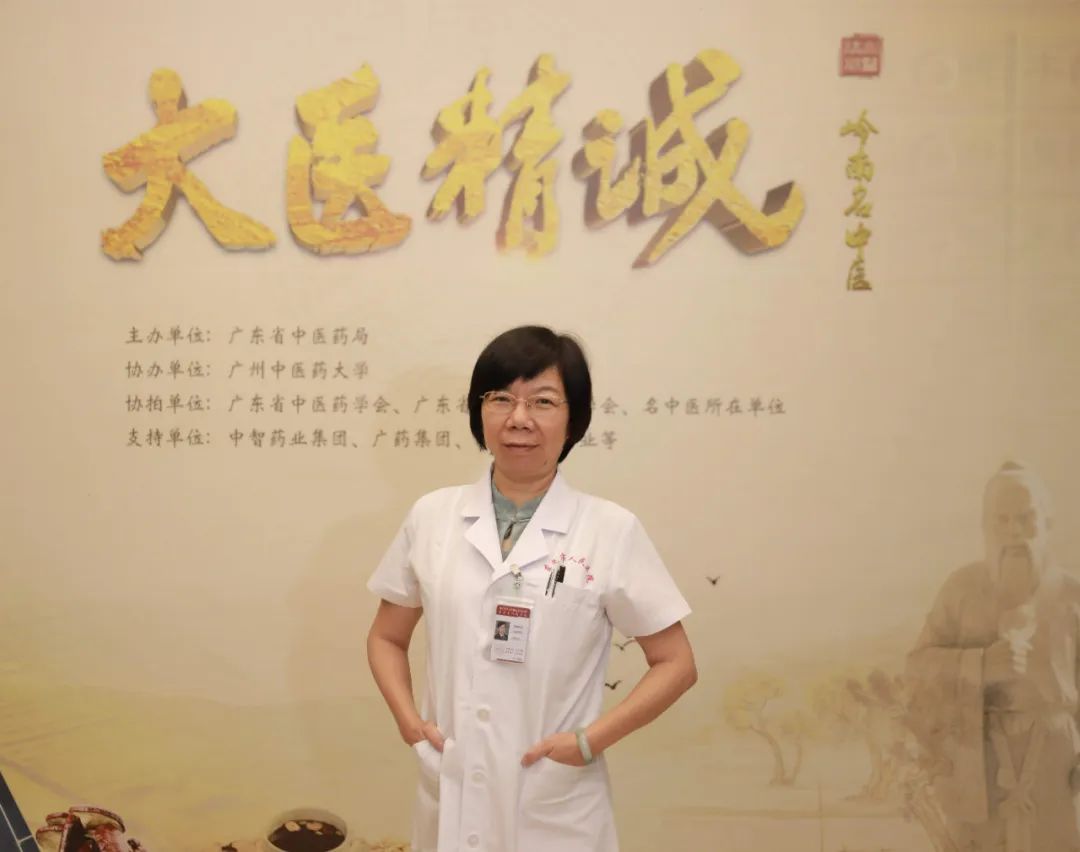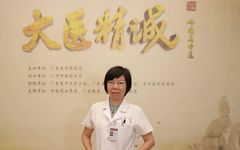

▲Fu Xiaoyun, a renowned TCM physician in Guangdong Province, is the chief TCM physician at the Tenth Affiliated Hospital of Southern Medical University (Dongguan People’s Hospital), a national inheritor of the academic experience of the second batch of old TCM experts, and a guiding teacher for the Guangdong Province famous TCM physician inheritance project. She has advanced diagnostic and treatment skills in hypertension, hyperlipidemia, cerebrovascular accidents, lumbar disc herniation, cervical spondylosis, facial paralysis, and neuroses.
Medical cases are records of clinical practice in TCM, reflecting the specific application of principles, methods, formulas, and medicines during diagnosis and treatment, and represent the thought process of physicians in treating diseases. The medical cases of famous physicians throughout history are treasures in the TCM repository. We have launched the “Case Study” column to inherit the essence and inspire our generation to progress together.
Basic Information
Patient Wu, female, aged 55. Initial diagnosis on March 21, 2022.Course of IllnessThe patient has a history of cerebral infarction, hypertension, hyperlipidemia, and menopausal syndrome. Over the past year, she has experienced recurrent colds, aversion to cold and wind, dizziness, headaches, generalized bone pain, palpitations, abdominal distension, normal appetite, loose stools (2-3 times daily), normal sleep, right hand numbness, menopause, hot flashes, night sweats, and frequent urination. The tongue is pale red, with a thin white coating, and the pulse is thin.Initial Diagnosis SymptomsSymptoms observed:The patient has recurrent colds, aversion to cold and wind, dizziness, headaches for one and a half years, accompanied by generalized bone pain, palpitations, abdominal distension, normal appetite, loose stools (2-3 times daily), normal sleep, right hand numbness, hot flashes, night sweats, and frequent urination. The tongue is pale red, with a thin white coating, and the pulse is thin.Diagnosis and TreatmentTCM Diagnosis:Post-stroke sequelae (Spleen and Kidney Yang deficiency).Western Medical Diagnosis:Sequelae of cerebral infarction, hypertension, menopausal syndrome.Treatment Method:Strengthen the Spleen, tonify the Kidney, warm Yang, and disperse cold.Prescription:Gui Zhi Tang (Cinnamon Twig Decoction) combined with Si Ni Tang (Frigid Extremities Decoction) with modifications.He Shou Wu (Polygonum multiflorum) 10g (pre-boiled), Gan Jiang (Dried Ginger) 10g, Zhi Gan Cao (Honey-fried Licorice) 8g, Gui Zhi (Cinnamon Twig) 10g, Bai Shao (White Peony) 10g, Da Zao (Jujube) 10g, Dang Shen (Codonopsis) 30g, Chen Pi (Aged Tangerine Peel) 5g, Rou Cong Rong (Cistanches) 15g, Bu Gu Zhi (Psoralea) 15g, Shan Yao (Chinese Yam) 10g, Jin Ying Zi (Honeysuckle) 15g, Fu Pen Zi (Raspberry) 15g. 5 doses, taken warm in the morning and evening.Follow-up ProcessSecond Visit: March 28, 2022The patient still experiences recurrent aversion to cold and wind, dizziness, palpitations, fatigue, abdominal distension, normal appetite, slightly loose stools (2-3 times daily), average sleep, right hand numbness, hot flashes, night sweats, and frequent urination. The tongue is pale red, with a thin white coating, and the pulse is thin.Prescription:He Shou Wu 10g (pre-boiled), Gan Jiang 10g, Zhi Gan Cao 8g, Gui Zhi 10g, Bai Shao 10g, Da Zao 10g, Dang Shen 30g, Chen Pi 5g, Rou Dou Kou (Nutmeg) 10g, Bu Gu Zhi 15g, Shan Yao 10g, Jin Ying Zi 15g, Tu Si Zi (Cuscuta) 15g, He Huan Pi (Mimosa) 20g. 7 doses, taken warm in the morning and evening.Third Visit:April 11, 2022The patient reports improved sleep, still experiences aversion to wind, and reduced night sweats, with soreness in both knees. The tongue is pale red, with a thin white coating, and the pulse is thin.Prescription:He Shou Wu 10g (pre-boiled), Gan Jiang 10g, Zhi Gan Cao 8g, Gui Zhi 10g, Bai Shao 10g, Da Zao 10g, Dang Shen 30g, Huang Qi (Astragalus) 30g, Chen Pi 5g, Rou Dou Kou 10g, Bu Gu Zhi 15g, Shan Yao 10g, Jin Ying Zi 15g, Tu Si Zi 15g, Fang Feng (Siler) 10g, Xu Duan (Dipsacus) 10g. 7 doses, taken warm in the morning and evening.Fourth Visit:April 25, 2022The patient reports improved sleep, still experiences aversion to wind, and reduced night sweats, with soreness in both knees. The tongue is pale red, with a thin white coating, and the pulse is thin.Prescription:He Shou Wu 10g (pre-boiled), Gan Jiang 10g, Zhi Gan Cao 8g, Gui Zhi 10g, Bai Shao 10g, Da Zao 10g, Dang Shen 30g, Huang Qi 30g, Chen Pi 5g, Rou Dou Kou 10g, Bu Gu Zhi 15g, Shan Yao 10g, Jin Ying Zi 15g, Tu Si Zi 15g, Fang Feng 10g, Xu Duan 10g. 10 doses, taken warm in the morning and evening.Fifth Visit:July 18, 2022The patient reports improved sleep and improvement in knee soreness. The tongue is pale red, with a thin white coating, and the pulse is thin and rapid.Prescription:He Shou Wu 10g (pre-boiled), Gan Jiang 10g, Zhi Gan Cao 8g, Gui Zhi 10g, Bai Shao 10g, Da Zao 10g, Dang Shen 30g, Huang Qi 30g, Chen Pi 5g, Rou Dou Kou 10g, Bu Gu Zhi 15g, Shan Yao 10g, Jin Ying Zi 15g, Tu Si Zi 15g, Fang Feng 10g, Xu Duan 10g. 7 doses, taken warm in the morning and evening.Sixth Visit:September 5, 2022The patient reports improvement in headaches, with stools either loose or formed, sleep is poor, and still experiences night sweats. The tongue is pale dark, with a white coating, and the pulse is thin.Prescription:He Shou Wu 10g (pre-boiled), Gan Jiang 10g, Zhi Gan Cao 8g, Gui Zhi 10g, Bai Shao 10g, Da Zao 10g, Dang Shen 30g, Huang Qi 30g, Chen Pi 5g, Rou Dou Kou 10g, Bu Gu Zhi 15g, Tu Si Zi 15g, Xu Duan 10g, Yuan Zhi (Polygala) 10g, Zhuan Long Gu (Calcined Dragon Bone) 30g (pre-boiled), Zhuan Mu Li (Calcined Oyster Shell) 30g (pre-boiled). 7 doses, taken warm in the morning and evening.Seventh Visit:September 19, 2022The patient reports improvement in aversion to cold, reduced palpitations, normal appetite, smooth bowel movements, improved sleep, and improvement in right hand numbness, cramping pain, and knee soreness, with increased sweating. The tongue is pale dark, with a thin white coating, and the pulse is thin.Prescription:He Shou Wu 10g (pre-boiled), Gan Jiang 10g, Zhi Gan Cao 8g, Gui Zhi 10g, Bai Shao 10g, Da Zao 10g, Dang Shen 30g, Huang Qi 30g, Chen Pi 5g, Tu Si Zi 15g, Xu Duan 10g, Yuan Zhi 10g, Zhuan Long Gu 30g (pre-boiled), Zhuan Mu Li 30g (pre-boiled), Fu Xiao Mai (Floating Wheat) 30g. 7 doses, taken warm in the morning and evening, combined with moxibustion to enhance the warming Yang effect.After diagnosis, the patient showed improvement in all aspects.
Remarks
This case falls under the category of “Post-Stroke Sequelae” in TCM internal medicine. According to the “Shang Han Lun” (Treatise on Cold Damage), “In cases of cold damage, if the patient has continuous diarrhea and body pain, one should urgently treat the interior; if there is body pain with clear stools, one should urgently treat the exterior. For interior treatment, Si Ni Tang is appropriate, and for exterior treatment, Gui Zhi Tang is appropriate.” “For diarrhea, abdominal distension, and body pain, one should first warm the interior before attacking the exterior. For warming the interior, Si Ni Tang is appropriate, and for attacking the exterior, Gui Zhi Tang is appropriate.”
In this case, the patient experienced recurrent colds, aversion to cold and wind, headaches, and sweating, indicating a Tai Yang disease with unresolved exterior symptoms. Diarrhea accompanied by abdominal distension indicates interior deficiency cold, with cold congealing and qi stagnation. Generalized bone pain is due to cold evil obstructing the exterior. Both interior and exterior are affected, so one should first warm the interior and then resolve the exterior. The prescription used is Gui Zhi Tang combined with Si Ni Tang to harmonize Ying and Wei, warm the interior, and disperse cold, resolving both interior and exterior. In the formula, Gui Zhi disperses wind-cold and warms the meridians to relieve obstruction; Bai Shao nourishes blood and harmonizes Ying to relieve blood obstruction, working with Gui Zhi to harmonize Ying and Wei; Sheng Jiang (Fresh Ginger) is acrid and warm, dispersing wind evil to assist Gui Zhi; Da Zao is sweet and warm, nourishing blood and benefiting qi, working with Sheng Jiang to harmonize Ying and Wei, adjusting the other herbs; He Shou Wu warms Yang and opens the meridians; Gan Jiang warms the interior and disperses cold, working with Fu Zi (Aconite) to enhance the effect of rescuing Yang; Zhi Gan Cao harmonizes the herbs, preventing acrid dryness from injuring Yin. Added kidney-tonifying herbs such as Tu Si Zi, Jin Ying Zi, Shan Yao, and Xu Duan, along with prepared Yuan Zhi and calcined Long Gu to calm the spirit and stabilize the kidney, while Dang Shen enhances qi and strengthens the Spleen. Si Ni Tang is the primary formula for rescuing Yang and reversing counterflow, and its warming Yang and opening meridians effect is beneficial for post-stroke sequelae with aversion to cold, stiffness in the limbs, and cold hands and feet, providing warming Yang and opening meridians effects.
Important Statement:
Due to individual differences in constitution and condition, the treatment plan in this case is only applicable to the patient at that time. Without TCM diagnosis and treatment, do not completely replicate the treatment plan in this case. Readers in need should seek treatment at a regular hospital to avoid delaying their condition. ■
Source: Dongguan People’s Hospital, Medical Guidance: Fu Xiaoyun, Chief TCM Physician

